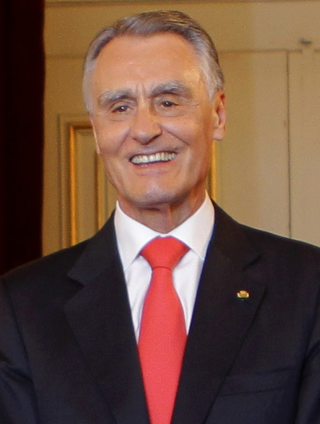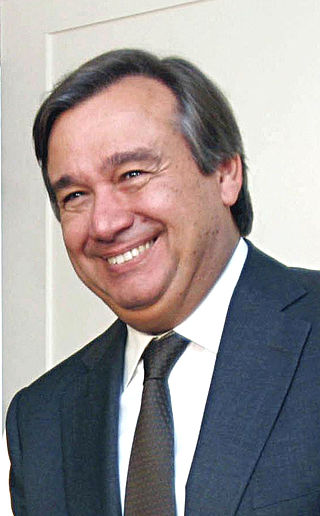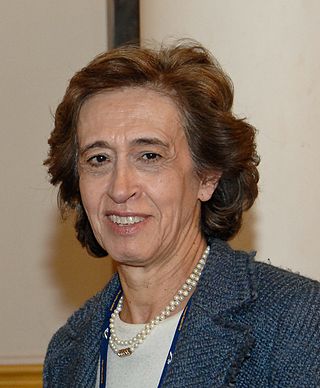
Presidential elections were held in Portugal on 13 January 1991.

Presidential elections were held in Portugal on 14 January 1996.

Presidential elections were held in Portugal on 7 December 1980.

Diogo Pinto de Freitas do Amaral was a Portuguese politician and law professor. He was Minister of Foreign Affairs from 10 January 1980 to 12 January 1981 and from 12 March 2005 to 3 July 2006. He also served briefly as Prime Minister in an interim capacity in the early 1980s, after the death of Francisco de Sá Carneiro.

Presidential elections were held in Portugal on 14 January 2001.

Presidential elections were held in Portugal on 22 January 2006 to elect a successor to the incumbent President Jorge Sampaio, who was term-limited from running for a third consecutive term by the Constitution of Portugal. The result was a victory in the first round for Aníbal Cavaco Silva of the Social Democratic Party candidate, the former Prime Minister, won 50.54 percent of the vote in the first round, just over the majority required to avoid a runoff election. It was the first time in which a right-wing candidate was elected President of the Republic since the 1974 Carnation Revolution.

Presidential elections were held in Portugal on 27 June 1976.

The 1995 Portuguese legislative election took place on 1 October. The election renewed all 230 members of the Assembly of the Republic.

The 1991 Portuguese legislative election took place on 6 October. The election renewed all 230 members of the Assembly of the Republic. There was a reduction of 20 seats compared with previous elections, due to the 1989 Constitutional revision.

The 1987 Portuguese legislative election took place on 19 July. The election renewed all 250 members of the Assembly of the Republic.

The 1976 Portuguese legislative election was held on Sunday 25 April, exactly one year after the previous election, and two years after the Carnation Revolution. With a new Constitution approved, the country's main aim was economic recovery and strengthening its democratic institutions. The election renewed all 263 members of the Assembly of the Republic.

The 1979 Portuguese legislative election took place on 2 December. The election renewed all 250 members of the Assembly of the Republic, 13 seats less than those elected in 1976.

The 1983 Portuguese legislative election took place on 25 April. The election renewed all 250 members of the Assembly of the Republic.

The 1980 Portuguese legislative election took place on 5 October. The election renewed all 250 members of the Assembly of the Republic.

The 2009 Portuguese legislative election was held on 27 September, to renew all 230 members of the Assembly of the Republic. The Socialist Party, led by incumbent Prime Minister José Sócrates, won the largest number of seats, but didn't repeat the overall majority they gained in 2005.

Presidential elections were held in Portugal on 23 January 2011. The elections resulted in the re-election of Aníbal Cavaco Silva to a second term as President of Portugal. Turnout in this election was very low, where only 46.52% of the electorate cast their ballots. Cavaco Silva won by a landslide winning all 18 districts, both Autonomous regions of Azores and Madeira and 292 municipalities of a total of 308.

Presidential elections were held in Portugal on 24 January 2016. The election chose the successor to the President Aníbal Cavaco Silva, who was constitutionally not allowed to run for a third consecutive term.

The 2020 Azorean regional election was held on 25 October 2020, to determine the composition of the Legislative Assembly of the Autonomous Region of the Azores. All 57 members of the assembly were up for election.

Presidential elections were held in Portugal on 24 January. The incumbent President, Marcelo Rebelo de Sousa, was reelected for a second term.

Presidential elections are scheduled to be held in Portugal in January 2026. The elections will elect the successor to President Marcelo Rebelo de Sousa, who is barred from running for a third term.


























